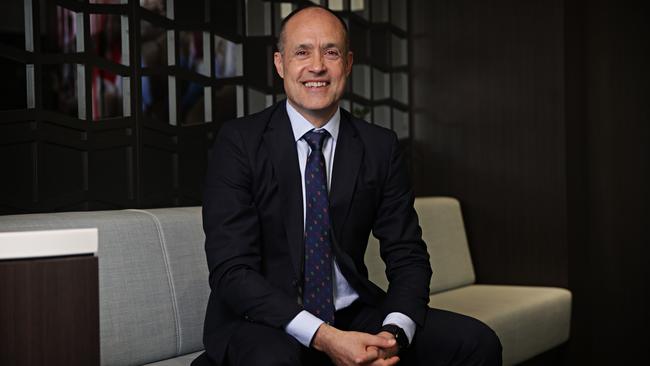Why two networks into one makes sense for Optus and TPG
Australia’s second and third largest telcos have come to an agreement that one network with two operators in the regions is far better than two networks with two operators.

Australia’s second and third largest telcos have come to a collective agreement that one network with two operators in the regions is far better than two networks with two operators.
Optus and TPG both said they were in favour of the two-on-one approach, and that such deals would lead to better utilisation of networks, lower repair costs and improved service.
Optus and TPG signed a $1.6bn network deal on Monday that will see them pool resources, decommissioning duplicate mobile sites and licensing spectrum from each other to improve the speed, capacity and coverage of the networks from 2025.
Michael Venter, Optus’s interim chief executive, told The Australian that the reduction in operational expenses would go a long way in improving service.
“Especially in a country the size of Australia, the utilisation of the network is very, very important from an economics point of view,” he said. “If you’ve got one physical network but two operators on it, that network is much better utilised than two networks and two operators.”
TPG chief executive Inaki Berroeta said network sharing deals were the only feasible way to get more providers into the regions.
“When this deal gets implemented in the beginning of next year, customers will overnight have more than double the coverage that they have now. And this will be immediate and it will be very noticeable for all,” he said.
If the deal is approved, TPG’s population coverage will increase from 96 per cent to 98.4 per cent, with its land coverage growing from 400,000sq km to more than 1,000,000sq km. The telco will go from accessing its own mobile network of 755 sites to also using Optus’s 2444 sites.
The deal would also likely see Optus and TPG working together on more joint ventures, with one already in place in metropolitan areas, Mr Berroeta said.
“And if it doesn’t go ahead, we will continue to look for options but definitely we will not invest unilaterally, it’s just not a smart way of doing it, and it’s not economically feasible,” he said.
It’s a deal that has already received early government support from Communications Minister Michelle Rowland and shadow Minister David Coleman. Ms Rowland said she was in favour of “any commercial agreements that may lead to greater coverage and more choice for customers in rural and regional Australia”.
Mr Coleman said increased coverage and competition “can only be a good thing for customers. While we await further details, this appears to be a significant step in the right direction for regional telecommunications,” he said.
Optus recognised it was still recovering from the fallout of its cyber breach and national outage, but the telco hoped the network deal would show its commitment to Australia, Mr Venter said.
“We recognise that the repair of our reputation will take time and it’s going to be a step-by-step, brick-by-brick build to repair our reputation,” he said. “So I don’t think this transaction by itself moves the needle demonstrably, but it indicates to customers that we are still in the game.”







To join the conversation, please log in. Don't have an account? Register
Join the conversation, you are commenting as Logout